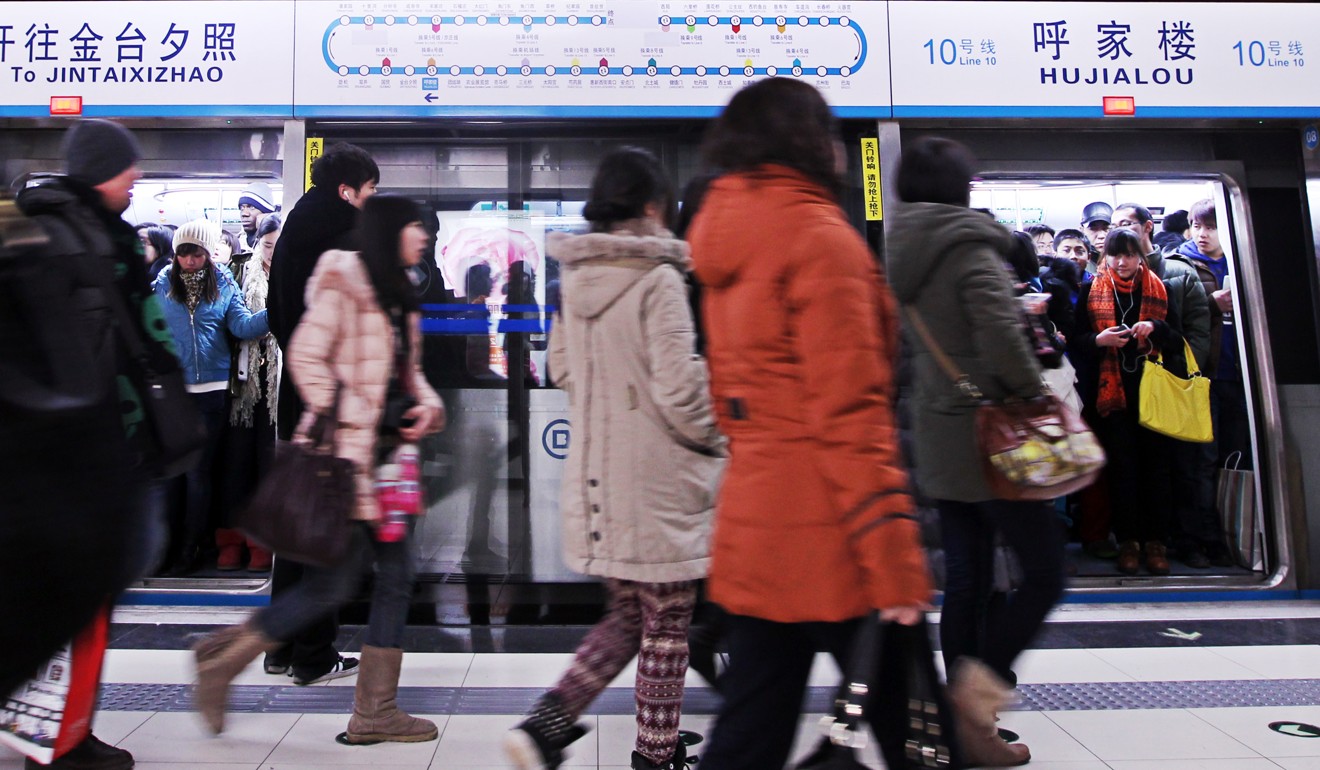
Beijing subway passengers can now pay by mobile – unless it’s an iPhone
Internet users say Apple risks falling further behind its rival tech firms on the mainland by not expanding the opportunities to pay using its handsets
Beijing subway users have given a mixed response to this week’s official launch of mobile phone payments on the capital’s metro system in China’s latest move to embrace a cashless society.
Public reception of the new service has been generally positive, but some residents complained online that the service was unavailable for Apple iPhone users.
One Beijing subway user welcomed the service on Weibo, China’s equivalent of Twitter. “Hurry up and roll it out to the rest of the country,” they wrote. The comment was liked by almost 200 other users.
Another said: “This scheme is beneficial to people who’re used to mobile payments and rarely take cash with them – I was really embarrassed to borrow cash from a stranger when I forgot my wallet once.”
But many iPhone users were unhappy they could not pay to ride on the subway using their Apple handsets. “This discriminates against iPhone users,” one person wrote.
Another commented: “Can Apple users still take the metro these days?”
The payment service, officially launched on Monday, is currently only available to users of phones that use the Android operating system, the state-run news agency Xinhua reported.
Users download a mobile app that allows them to pay for their subway rides with a swipe of their phones and to skip queues to top up their metro cards at ticket counters.
However, iPhone users cannot use it as Apple has not opened up its technology to allow users to hook up their phones without an internet connection to public transport payment systems in China.
Many Chinese mobile phone brands such as Xiaomi and Huawei do support the technology, but Apple is limited on the mainland to its Apple Pay system, which it launched in China last year.

China is Apple’s third-biggest market, but its revenues in the country have been on the decline as the iPhone faces stiff competition from cheaper domestic models.
The iPhone has slipped into fifth position behind offerings from local rivals Huawei, Oppo, Vivo and Xiaomi, according to analysts.
Apple Pay vice-president Jennifer Bailey told the Shanghai based news website Thepaper.cn last month that Apple Pay was used in public transport systems in Japan, London and Moscow, among other cities.
“It’s conceivable that we will continue to further extend Apple Pay to more cities,” she was quoted as saying.
Zhao Jian, a professor at Beijing Jiaotong University, said Apple Pay’s in-app transaction fees and equipment costs were “about 20 per cent more expensive” than Chinese mobile payment systems and it might take longer for the service to be made available on China’s major public transport networks.
Chinese mobile payment systems Alipay and WeChat Pay hold over 90 per cent share of China’s US$5.5 trillion mobile payments market. Alipay is owned by Alibaba Group, who also owns the South China Morning Post.
The Beijing metro serves almost 10 million passengers daily across 19 subway lines.

